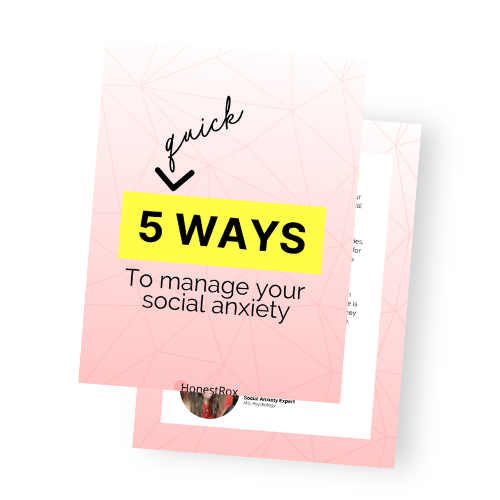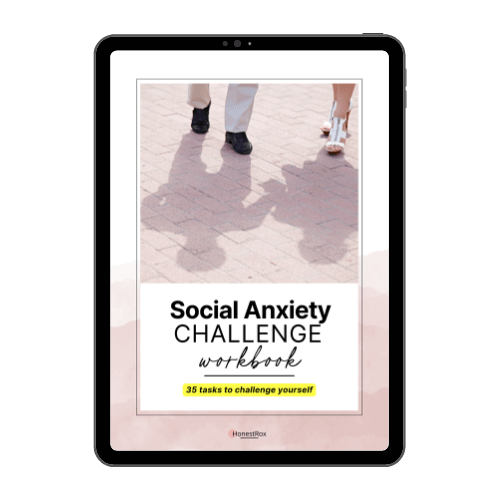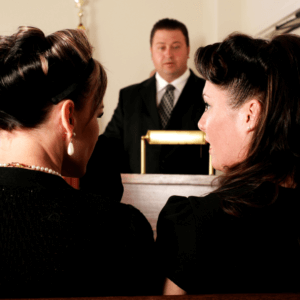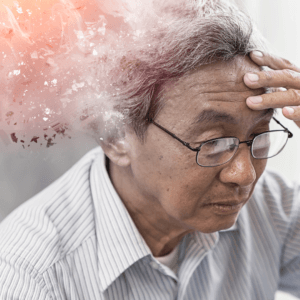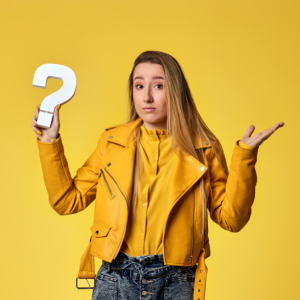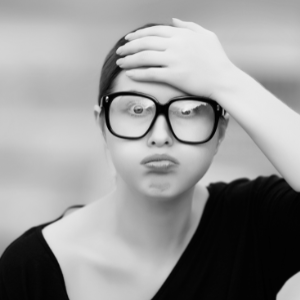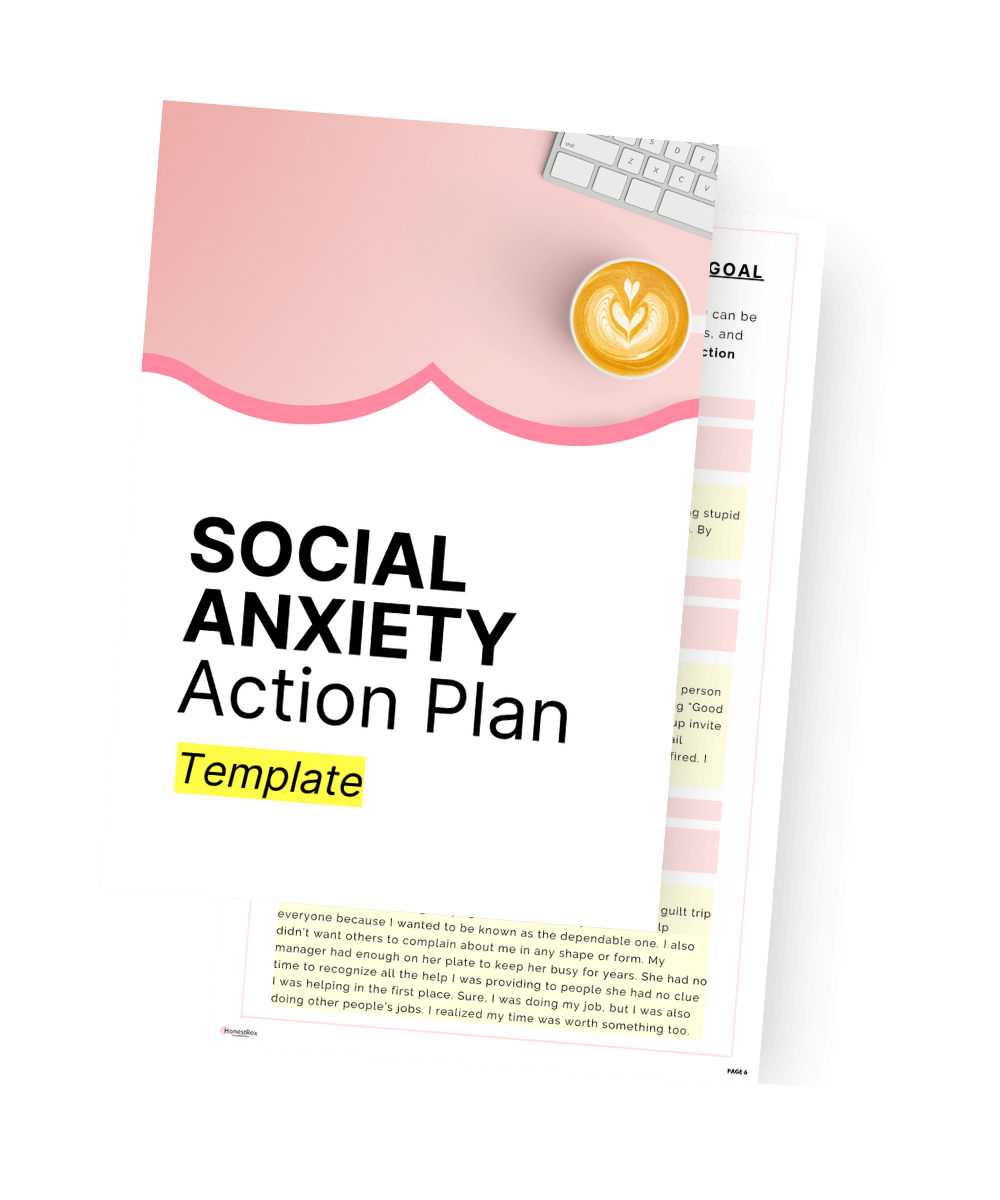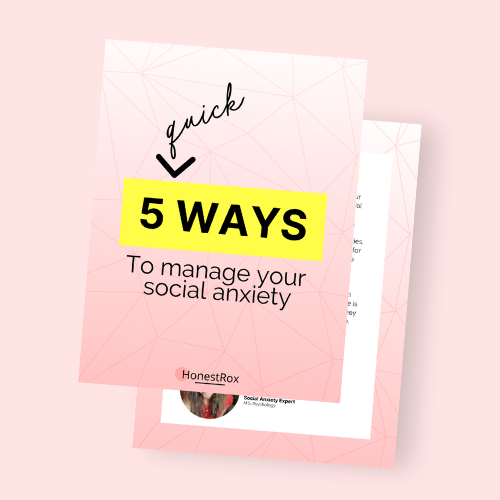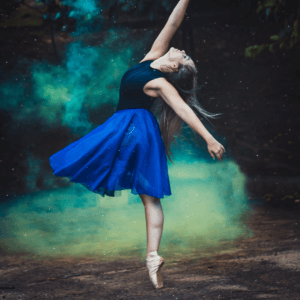
Social Anxiety
9 Types of Therapy for Social Anxiety
Breaking down the most social anxiety friendly therapies out there
You should look into therapy for social anxiety if you feel debilitated, have a tough time leaving the house, making friends, expressing yourself, or getting a job.
If you’re curious and want to know your options, here are nine therapies you can look into.
For each, I’ll give you a quick definition and when it’s recommended to tap into and use the respective techniques. In future episodes, I’ll go more in-depth and give examples for each of these therapies. So stay tuned for that.
1. Cognitive-Behavioural therapy (CBT)
This is considered one of the most effective and popular treatments for social anxiety. CBT works by helping you identify and challenge unhelpful thought patterns that lead to anxiety and replace them with more positive and realistic thoughts.
It also involves gradually confronting scary social situations in a safe and structured way.
When to use the techniques:
You can use CBT to prepare for social situations (so, right before you’re about to step into your car to drive to that dreaded happy hour). You can also tap into the techniques while you’re experiencing social anxiety.
And, of course, post-social interaction to reflect on what happened.
2. Exposure Therapy
This therapy is technically an “activity” under CBT, but it can stand by itself when you are gradually and repeatedly exposed to social situations that scare you.
Exposure therapy helps you face your “social fears” by gradually placing yourself in those situations so you can “train” yourself to handle them.
But this is where most people go wrong with exposure therapy. They think going to work daily and being around people is “exposure.” It’s not. You could do that daily for years and won’t progress with your social anxiety.
It has to be DELIBERATE. INTENTIONAL. REFLECTIVE. You must build up slowly and in the areas that matter to you.
When to use the techniques:
There’s a prepping stage before you go into live-action Tom Cruise mode. Once you’re specific on your struggle and what you want to tackle, you’ll use exposure therapy in a controlled environment (if you can) and gradually translate it to real-life exposures.
This is a regular practice to employ if you want to see results.
For example, I test my social anxiety as often and frequently as possible. I did a short video a few weeks ago with some of the tasks I’ve recently done to spike my cortisol.
3. Mindfulness-Based Therapy
This one will encourage you to focus on the present moment rather than worrying about the future or ruminating on the past. My goodness, where do I sign up for this?
It’s about getting the skills to manage anxiety and reduce negative thought patterns. And yes, as basic as this sounds, this is where we all find ourselves victims of our inner critic and limiting beliefs.
It’s not as simple as saying, “Well, I’m just going to focus on the here and now moving forward.” Our brain has a brain of its own in that sense.
When to use the techniques
Similar to CBT, you can use this therapy to prepare for social events. So, pre-event. You can incorporate the techniques into a daily routine to ground yourself and implement them during social interactions when the external stimuli and/or inner dialogue become too overwhelming to handle.
4. Acceptance and Commitment Therapy (ACT)
ACT involves accepting anxiety and fear as a part of life while committing to move forward despite these feelings. It emphasizes mindfulness, acceptance, and behaviour change.
When to use the techniques
Use the techniques for pre-event planning. You can bring in mindfulness therapy here as well and intertwine them. Amid an anxiety episode, you can use ACT techniques to disconnect from your thoughts.
After an event, you can use ACT to reflect on what you’ve experienced. It is also recommended to add ACT to your daily routine.
5. Group Therapy
This is probably the most recognizable type of therapy, as we see it popping up a lot in movies, alongside talk therapy, which surprisingly is not part of my list.
In group therapy, you can practice your social skills with others in the same boat as you.
It will also give you a supportive environment to share experiences and strategies. But sometimes, even knowing that others are going through the same thing doesn’t make it easier to get past it.
I remember being a Toastmasters group, an international organization dedicated to helping people uplevel their presentation skills, and each time I got up to give a speech, I had the same anxiety.
It wasn’t necessarily lessened because I knew everyone at the table was at the same level, but I did feel the group’s support and the non-judgmental atmosphere in that room.
When to use the techniques
This is great when you’re just starting on your journey, and you’re not exactly sure what the trouble is or the challenges you’re facing.
It’s all about learning more about social anxiety and yourself in the context of its symptoms.
You also want to go to group therapy when you’re ready to practice certain skills before you try them out in the real world. It’s also great for ongoing support and during crises when you feel over your head and have nowhere to turn.
6. Dialectical Behaviour Therapy (DBT)
Although DBT is primarily used for individuals with borderline personality disorder and severe emotional regulation issues, it can also be effective for social anxiety.
It combines CBT with mindfulness, emotional regulation, and distress tolerance strategies.
When to use the techniques
You can use the techniques to prepare for social events, during therapy sessions, and in moments of anxiety (you’ll have self-soothing techniques to fall back on). Something that stands out about this type of therapy is that it will have you reflect on past social events to positively reinforce yourself for future ones.
You can also use this in your daily life and crisis moments.
7. Social Skills Training
This behaviour therapy improves social skills in people with social anxiety. This could involve practicing different social scenarios and receiving feedback and coaching to improve.
When to use the techniques
You’ll perform role-playing exercises during therapy sessions after identifying your challenges so that you can prepare for social events. You can use the training during real-life social situations by self-monitoring yourself and applying the skills you’ve learned.
You can also use post-social event techniques to debrief and positively reinforce yourself.
Challenge Your Social Anxiety
Grab the 35-task workbook to start challenging your social anxiety with gradual exposure therapy. Each task has 3 difficulty levels so you can choose how much you want to push. Each task also has a reflection page to help you debrief after each task.
8. Compassion-focused therapy (CFT)
This is another therapeutic approach that can benefit people with social anxiety. Developed by psychologist Paul Gilbert, CFT is designed to help those who struggle with shame and self-criticism, common issues for people with social anxiety.
CFT is based on the understanding that compassion can be powerful for healing and change.
When to use the techniques
When you anticipate a social event, during therapy sessions, in moments of high anxiety (and you desperately need a break from yourself), post-event, and daily routines.
9. EMDR
EMDR stands for Eye Movement Desensitization and Reprocessing and can help manage social anxiety. This therapy helps people process traumatic memories and the stress associated with them.
It can also tackle the negative beliefs and thought patterns that trigger social anxiety. In EMDR therapy, the therapist will help you identify a specific social situation you are anxious about.
You will then focus on that situation while the therapist uses bilateral stimulation (eye movements, tapping, or sounds) to help your brain process the memory.
EMDR therapy is typically delivered over 6-12 sessions, and it can help you reduce your anxiety about social situations, change your negative beliefs about yourself, and help you feel more confident in social situations.
When to use the techniques
Since this is more of an in-house therapy that delves into your past, the techniques are usually administered by a licensed therapist. Once you identify and share a traumatic event, they can guide you through the session to pinpoint how it contributes to social anxiety.
Throughout multiple sessions, your symptoms should see an improvement as you let go of the trauma together with the therapist.
If you are interested in trying EMDR for social anxiety, it is important to find a therapist who is trained in this type of therapy.
I’m curious. Did you pick up on a pattern with all these therapies?
They all involve A LOT of inner work. Some keywords to take away with you today are Mindfulness, Acceptance, and Compassion. Keeping these three principles at the forefront of your mind will help you tremendously in the fight against social anxiety.
But there’s another type of therapy I haven’t mentioned. It’s not tied to social anxiety, but sharing it with you is interesting.
Logotherapy
The founder of Logotherapy, Viktor Frankl, was a Holocaust survivor of several concentration camps. He published the book “Man’s Search for Meaning” in 1946 about his experience of extreme suffering and inhumane conditions, which gave way to his theory that meaning in life is the most powerful driving force in humans.
He created Logotherapy, a form of existential analysis focusing on finding meaning through all life experiences, including the painful and distressing ones.
Something to ponder about as you begin your research on each one of these therapies I just highlighted for you!
I’d love to know which of these resonates the most with you and if you’re willing to give it a go! Or maybe you have already and want to share your experience with me.
Shoot me an email at [email protected].
Don’t forget to get the 35-task workbook to challenge your social anxiety!
This post breaks down the top 9 therapies that can help you manage your social anxiety.
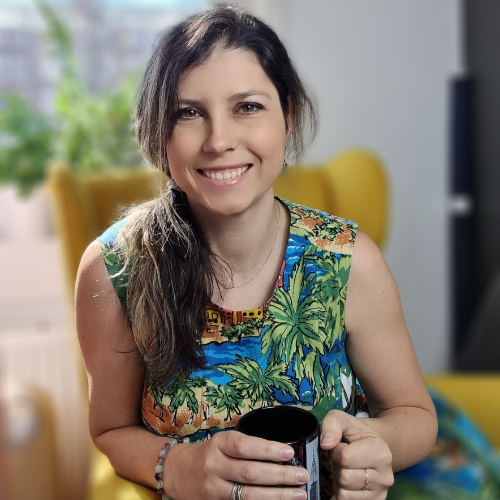
I'm Roxana

I went from being scared to ask a question out loud to hosting summits online. I love coffee, french crepes, and working from home. My mission? Help others build their social confidence to make friends, have conversations, and be comfortable around people!
Did you find value in my content? Support me by clicking the button!
Recent blog posts
Latest Episode

About the blogger
I'm Roxana Alexandru
As a social anxiety expert I share my best strategies and tips that I’ve learned on my journey to help you manage your social anxiety and be comfortable around people.
Like what you see here?
Check out the blog!
Must Reads
Grab these freebies
Free Challenge
5 tasks. 3 difficulty levels. Test your social anxiety through exposure therapy.
Grab these freebies
Free Template
Get the template that I personally used and create your own steps for your journey.
A podcast meant to help you be comfortably you, no matter the situation. My goal is to give you the confidence to go out into the world, share your worth, build meaningful relationships, and see yourself as highly capable. It all starts with being your awkward self comfortably.
Awkward together
The “Be socially confident” newsletter drops weekly to inspire, entertain, motivate, and educate you about social anxiety (who knew it could be so much fun?!). Honestly, if anything, you’ll get a kick out of my own experiences and the funny GIFs.

Call me Rox!
I’m obsessed with social anxiety. In a healthy way! After a decade of being debilitated by it, I finally have the tools I need to manage it (the journey itself is no joke). I now use my experience to help others.


